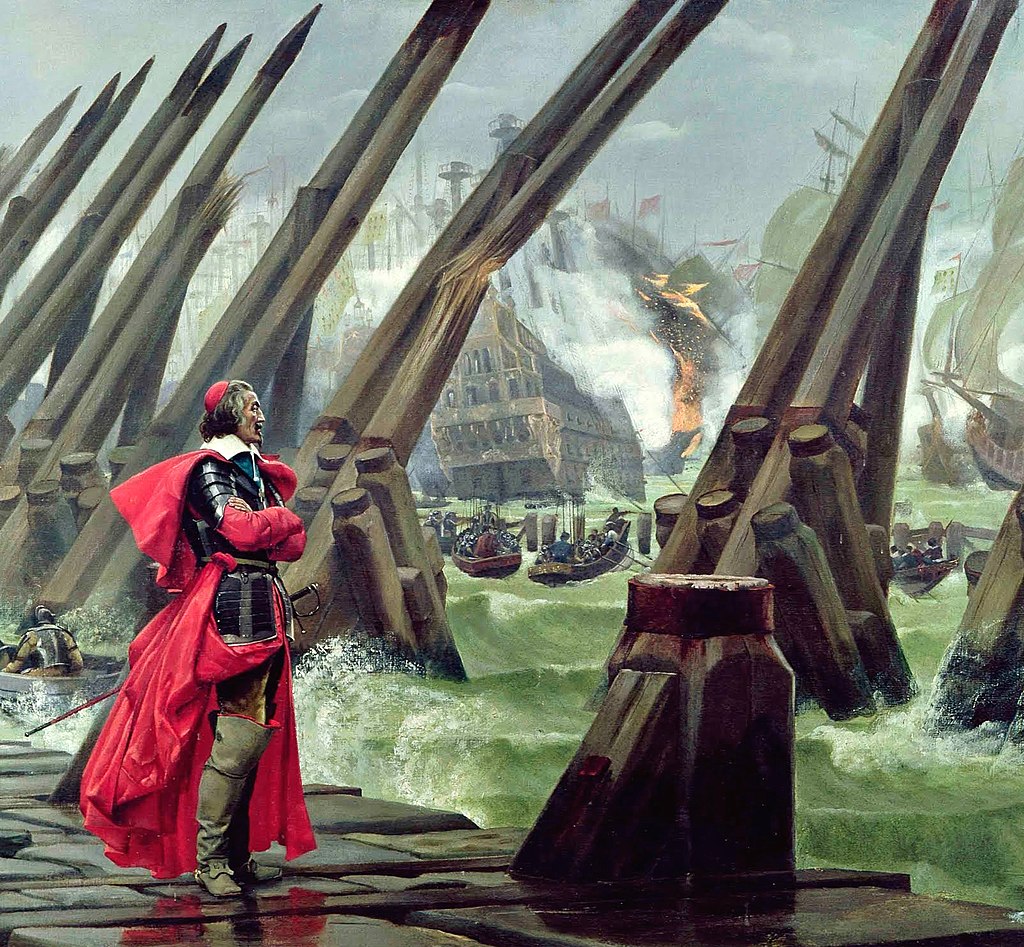 |
| Henri Motte's depiction of Cardinal Richelieu at the Siege of La Rochelle. |
Renowned for his fierce intellect, mastery of the dark arts of propaganda, and unshakeable belief in the centralizing virtues of the French monarchy, Cardinal Richelieu’s actions as chief minister under Louis XIII from 1624 to 1642 have been heatedly debated by generations of historians, political philosophers, novelists, and biographers. The polarizing figure is best known for three things: his unabashed authoritarianism, his efforts to stiffen the sinews of the French state, and his decision to position France as a counterweight to Habsburg hegemony through a network of alliances with Protestant powers. This article focuses on this last aspect of Richelieu’s life and legacy: his conception and practice of great power competition. What philosophy of power and statecraft underpinned the cardinal’s approach to counter-hegemonic balancing? To what extent was Richelieu truly successful, and what insights can contemporary security managers derive from his policies and actions? Drawing on both primary and secondary literature, this essay engages in a detailed and interdisciplinary study of Richelieu’s grand strategy during the Thirty Years’ War. (Read more.)Share

















No comments:
Post a Comment